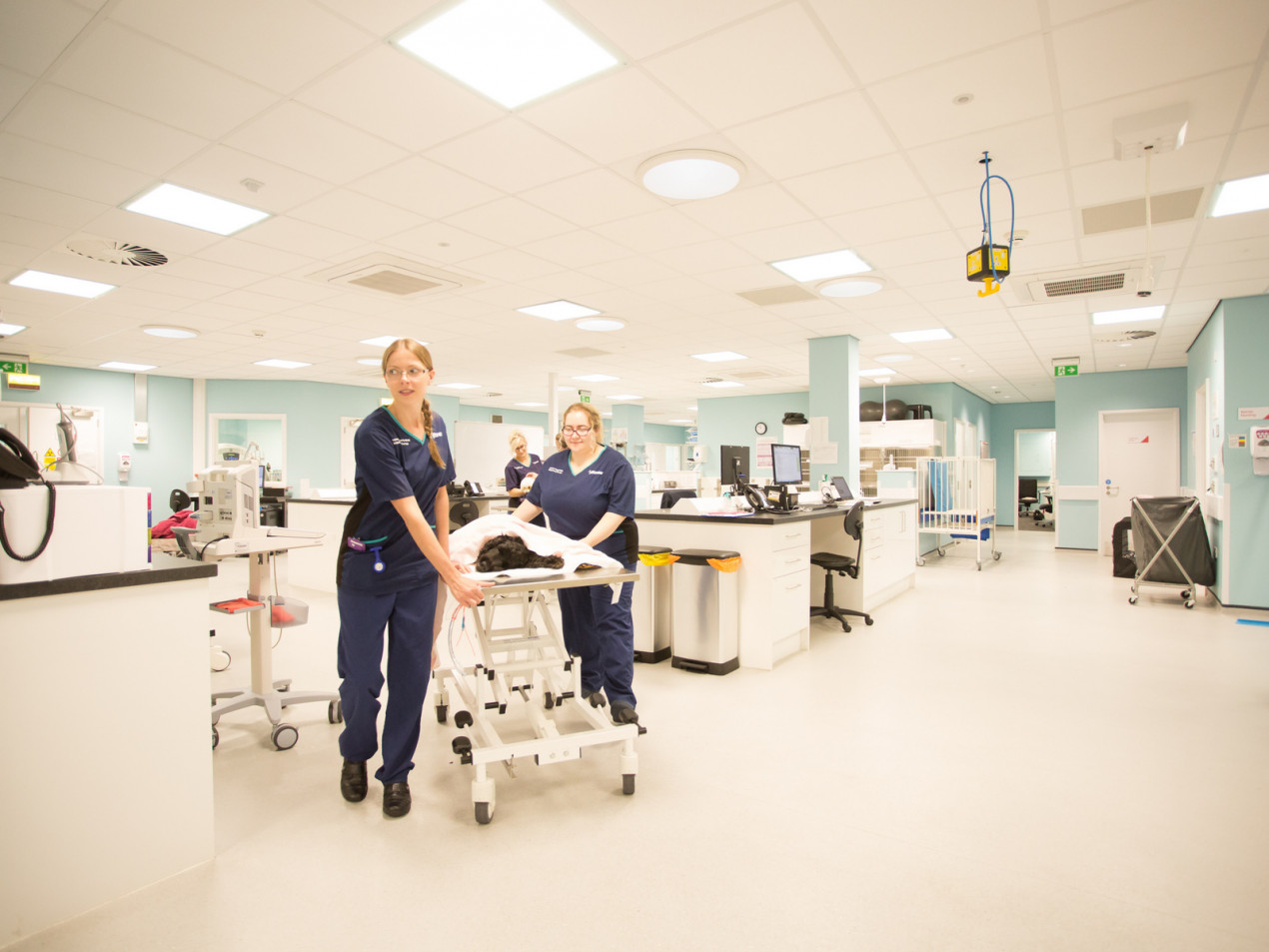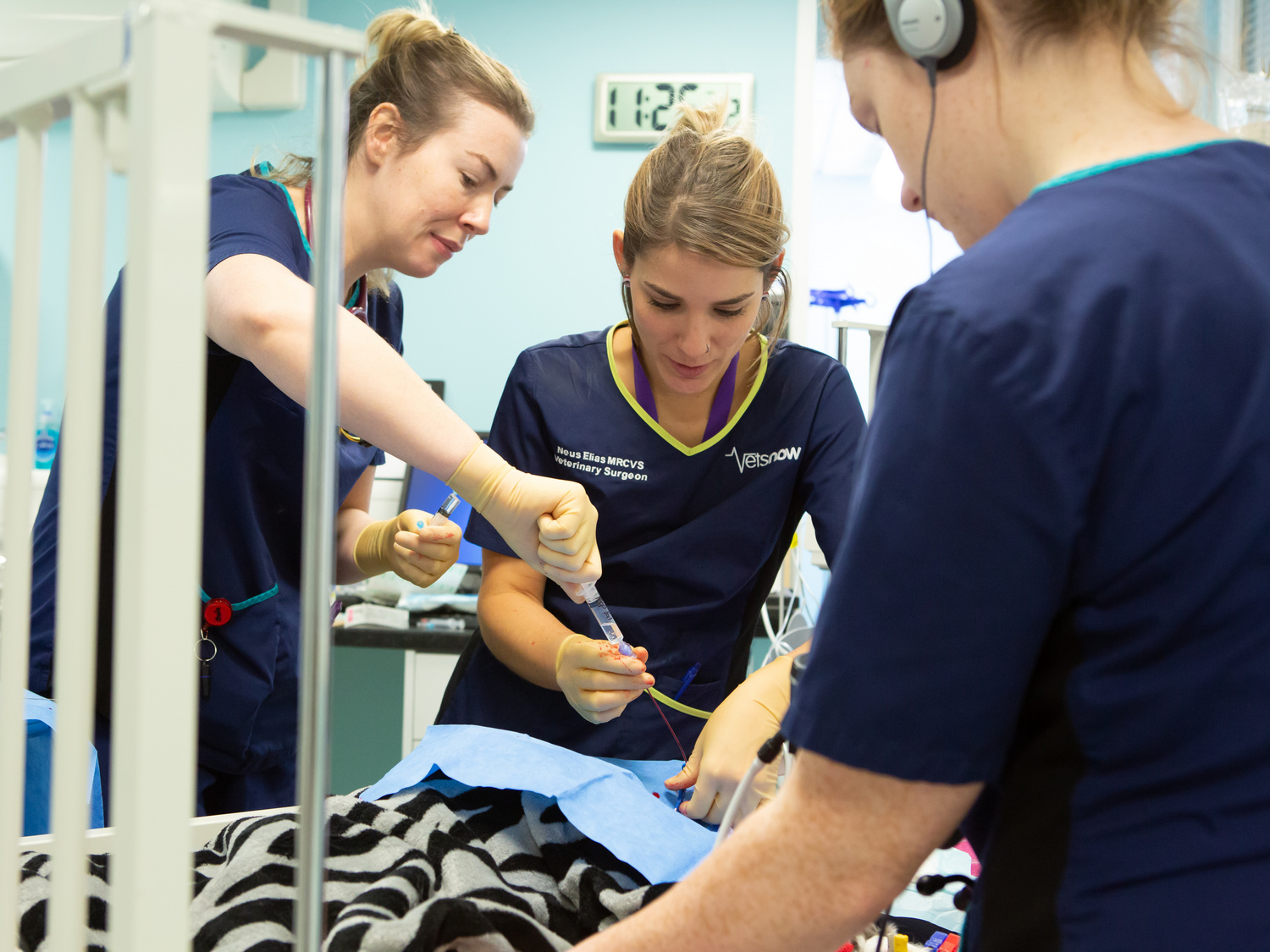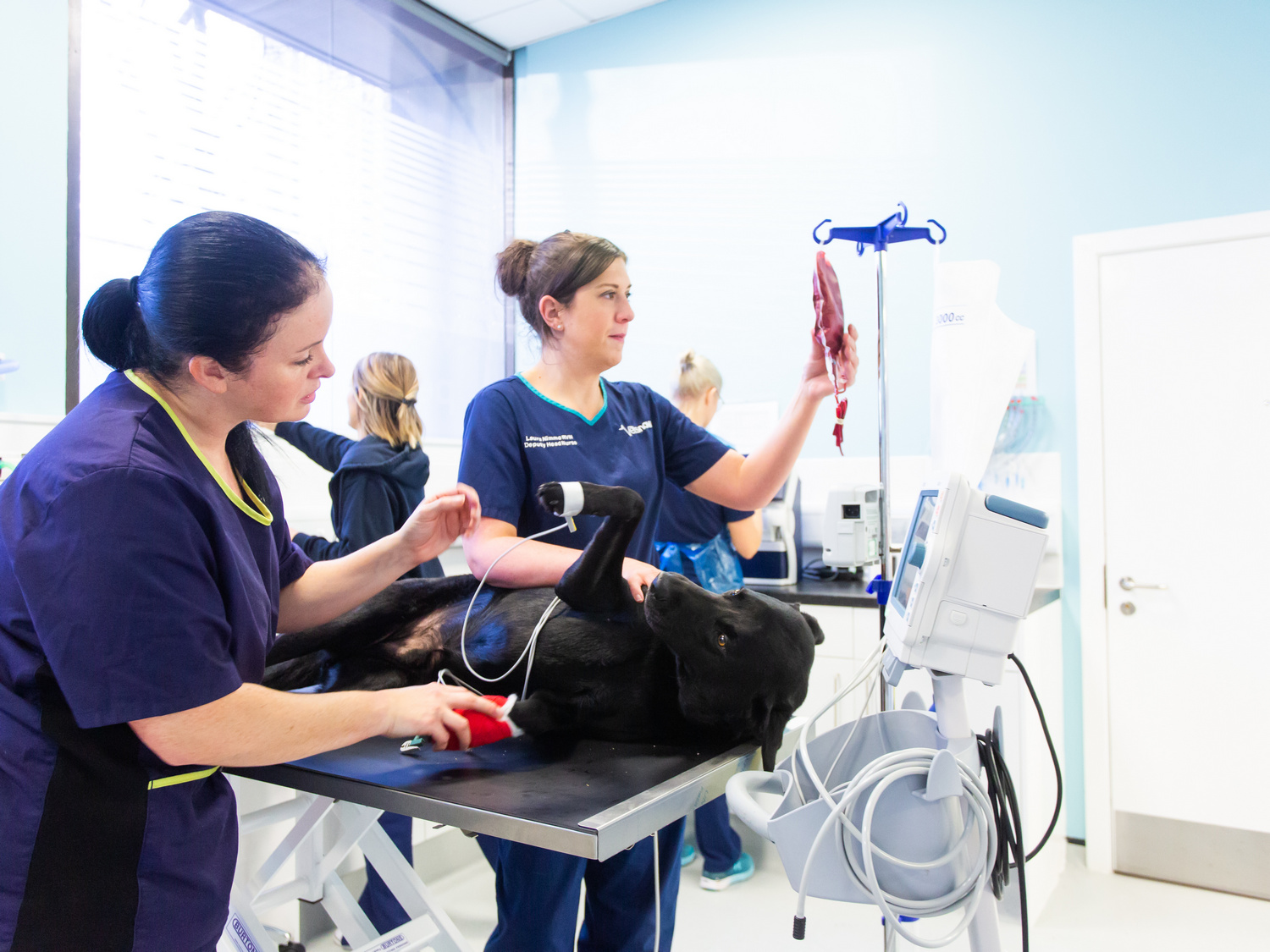
Having a plan B
I always encourage my vets to think about what they are going to do if their plan fails. If you don’t prepare in your mind, and share plan B with the team, you could delay treatment, or miss something. You should also think about how you will cope with your emotions if something fails. Who is your rock to lean on? The pandemic has hit us all differently and it’s important to know you are not alone.
Susana Jauregui – Senior vet, Hull
Communication
I think one of the most important things for vets to focus on this year is good team communication to ensure effective patient triage. With more of our patients and clients having to wait outside of the clinic, it is important to have a system and communication strategy which ensures the patients are triaged appropriately according to their presenting complaint. This helps not only to ensure excellent patient care, but to reassure clients that although we can’t always see them, we are dealing with their concerns as efficiently as possible.
Rachel Black – Senior vet, Edinburgh

Triage
As we move out of COVID restrictions we can already see a backlog of routine procedures and already full appointments books. As urgent cases call in on top of these our teams’ ability to accurately assess and triage cases will become increasingly relied upon to look after the animals under our care.
– David Hollinshead – Senior vet, Sheffield
I would say triaging. If you can do this well you can also use it throughout the day to see if a patient is well or its condition is deteriorating. It can be used in any setting, by vets, nurses and ACAs.
It can even be used with vaccinations – I had a patient in for vaccination in day clinic and when I checked it over, its chest didn’t sound right. It turned out to have pneumonia. It was good it was spotted before it was vaccinated!
– Nisha Cooper – Head nurse, Harrow
Nurse triage is an absolutely vital skill for RVNs in both ECC and day practice. We have become so much busier over recent months with the surge in pet ownership. It is therefore vital to be able to prioritise the order in which patients are seen when multiple animals present at once. This ensures patients that are truly critical are given emergency first aid and prompt treatment which ultimately may be life saving.
– Lesley Moore – Head nurse, Macclesfield
To know what cases can safely wait (once triaged) when really busy and how to communicate that to the owners. Plus when to know to escalate them.
– Amanda-Jane Rogers – Head nurse, Coventry
Triaging is definitely a subject that should be emphasized. Vet nurses are often the first point of contact when a client calls, especially when the vet is busy assessing or treating other patients or is “tied up” in surgery.
It is important that vet nurses are trained well to patiently and efficiently obtain the right information, asking the right questions while keeping an upset or panicking pet owner calm enough to give helpful answers.
This is something that cannot be repeated and trained often enough, I think.
– Tanja Klein – Vet nurse, Colwyn Bay
I think triage of the patient is a very important role for RVNs.
Certainly, within our clinic, we have seen a higher caseload during the pandemic, and busy shifts could quite easily miss emergency cases that require triage immediately.
We have introduced a whiteboard to assess what has arrived, condition, and in-clinic cases. This has helped on extremely busy shifts to control flow of appointments.
I think all nurses should be fully utilised for emergency triage, to prevent any situation from deteriorating.
– Faye Grimshaw – Head nurse, Bradford
I think triage is a very important clinical skill for all vet nurses to have. A confident, efficient triage can lead to swift necessary intervention for a patient on arrival at the clinic. Without nurses confident at carrying out a triage on arrival the severity of a patient’s condition could be overlooked and could lead to a delay in that patient receiving the care it needs, and sometimes those extra minutes could make a big difference to a patient’s outcome. Especially in the current climate where we have seen an increase in caseload and therefore an increase in waiting times, I feel it is more important than ever for nurses to hone their triage skills to ensure that patients are not left waiting outside the clinic unchecked when a quick effective triage could lead to prompt decisive treatment and make a big difference to patient outcomes.
– Anna Moran – Head nurse, Tunbridge Wells
Conflict resolution
I really think skills such as conflict resolution, complaint handling and difficult conversations are really useful skills to have for communicating with each other as colleagues, but also many client concerns could be quickly and easily be resolved at clinic level without needing to escalate. Even how to take feedback rather than seeing it as a negative thing is beneficial.
– Catrina Durose – Veterinary surgeon and client care consultant
Pain relief
We all know the importance of pain relief but a key thing to remember is tailoring to the individual. Rather than bup every 6 hours or methadone every four hours or a single jab or a NSAIDs, we need to think about pain scoring before and after a drug is given, the different pain pathways and how we can provide multi-modal analgesia to optimise pain relief while reducing the potential side effects of different drugs. Becoming confident in the maths for CRIs is a great tool to have in the kit because of the benefits maintaining plasma concentrations in your provision of analgesia. Finally, don’t forget the non-pharmaceutical aspects of patient comfort which will help with the perception of pain; passive movement, turning, toileting and temperature.
– Sara Jackson – Senior vet, Dundee

Recognition, intervention and management
During the pandemic, there has been an alarming increase in the number of patients presenting for a disease that is normally vaccinated against. We have had several things to contend with including an increased number of people acquiring puppies, sometimes from puppy farms in the UK, an increased number of animals being imported from Europe, often from puppy farms, and in some cases delays in vaccination programs.
Vets Now reviewed case data comparing Jan-March 2020 to Jan-March 2021 and identified a 129% increase in patients presenting with parvovirus and this is certainly reflected in my experience in the clinic. These patients rely on a dedicated and committed team and the veterinary nurses play a vital role in the survival of these patients. Early recognition, intervention, and appropriate management are vital skills for the nursing team and they can play a key role in the outcome of these cases with suitable knowledge and skills.
– Katherine Howie – Head nurse, Farnham
Ultrasound
Point of care ultrasound of the chest and abdomen is an important skill for all vets whether they be working during the day or during the night. The technique is easily learnt, quick and places minimal stress on patients whilst yielding large amounts of information. Its use is applicable to a wide variety of cases and definitely not just animals who have sustained trauma!
– Simon Patchett – Senior vet, Kilmarnock
I think the most important skill to develop in 2021 is ultrasound. Gone are the days where ultrasound should be viewed as something complicated and difficult. Even the information gained from basic free fluid scanning can rapidly advance diagnosis of a case as well as aid in prognostic discussions with owners. Pick up a scanner and have a go. Once you are happy with that then get yourself onto some Point of Care Ultrasound Courses to further advance your skills.
– Anneka Phillips – Senior vet, Bristol
Personally, I think the most important clinical skill that all vets should develop this year is proficiency with ultrasonography. It can provide so much information very quickly and can be used in a whole host of situations, from things as simple as looking for bladder stones and pregnancy diagnosis, to more challenging things such as echocardiography and ultrasound guided pericardiocentesis. I would obviously recommend formal training but just having a go with a more experienced colleague can be helpful too. The day someone becomes comfortable with using it is the day their life changes in practice!
– Paul Salmon – Senior vet, Reading
Puppy and kitten knowledge
I think being confident in some of the basics of nursing is essential. Although it’s not something I do being a night nurse, knowledge in puppy and kitten pet care is vital. Knowledge should include vaccination protocols, flea and worming protocols and discussions on neutering.
For the OOH side of things, confidence in placing ivs and taking blood samples can be so important in the smooth running of shifts so that the team does not always have to rely on the vet to carry out these tasks.
– Alana Taylor – Vet nurse, Lincoln
Blood smears
I feel that blood smears are important and should be developed by nurses. Nurses are the ones who make the slides so why not try to look at them too. Although we are not allowed to diagnose we can certainly gather the important information for the veterinary surgeon to make the diagnosis. It is easy to make a smear, and in some cases the veterinary surgeon may not get chance to look at it. It may have that valuable bit of information that is needed to make the diagnosis and we as nurses can help by identifying the cells that are present, ultimately aiding in the treatment of the patient. A win-win scenario – nurses develop skills, the vet can use their time wisely and the patient gets the correct treatment.
Rebecca Gamble, Vet nurse, Middlesbrough
